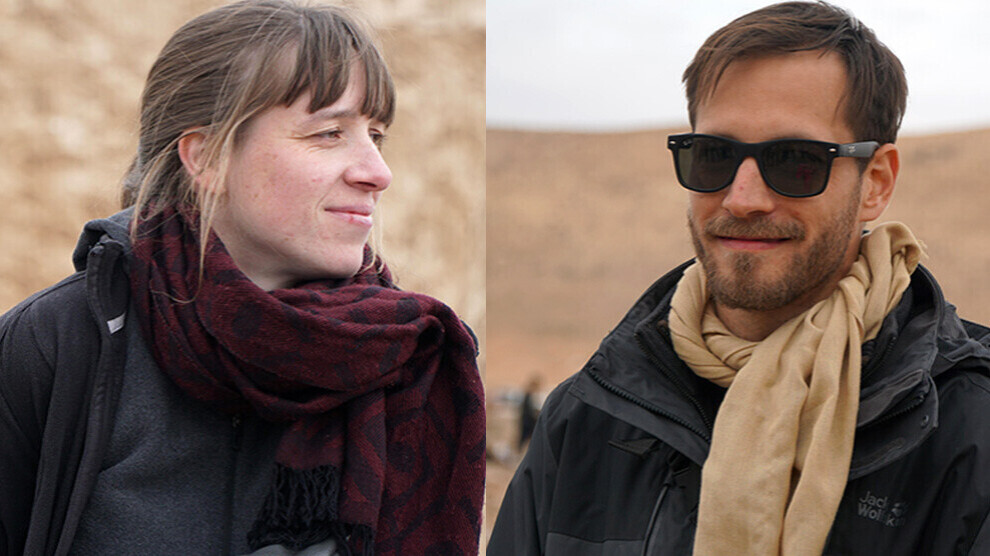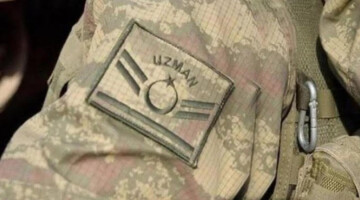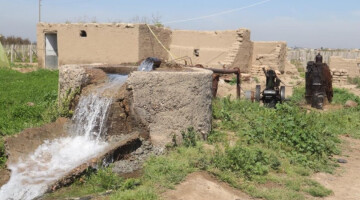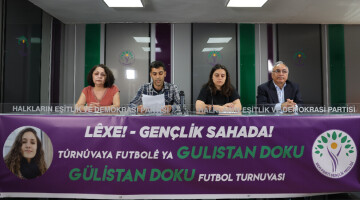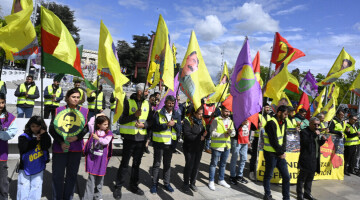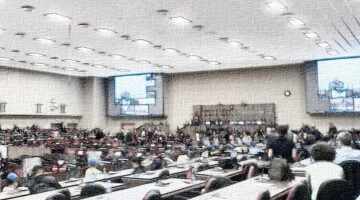German journalist Marlene Förster and Slovenian journalist Matej Kavčič have been deported by Iraqi authorities after a month in detention. Both will arrive in their respective countries of origin later today, informed the initiative "Free Marlene and Matej" on Friday.
Marlene Förster and Matej Kavčič were arrested by the Iraqi army exactly one month ago in the main Yazidi settlement area of Şengal (Sinjar) where they had been researching for months about the social development of the Yazidi community after the genocide perpetrated by the terrorist militia "Islamic State" (ISIS) in 2014. At the time of their arrest, the two media workers were on their way back from the celebrations of the Yazidi New Year festival Çarşema Sor. Iraqi media spoke of "terror allegations."
From Şengal, Förster and Kavčič were first taken by the military to the city of Mosul, from where they were transferred to Baghdad to an Iraqi intelligence prison. After days without information about their whereabouts, without access to lawyers or state representations of Germany and Slovenia, they did not receive access to legal counsel until May 15 and 16, respectively.
There is still no written confirmation of the grounds for investigating the two journalists. According to the initiative "Free Marlene and Matej", exact information about the reasons for the deportation is not known yet. The deportation took place at a time when the attention on the case in the German public rose strongly. "More than 50,000 signatures under our petition for the release of Marlene and Matej, media coverage and statements by important organizations and personalities have increased the pressure on the German Foreign Office to work for the release of the two," said Lydia Förster, the mother of Marlene Förster. The fact that it took so long in the end was also the responsibility of the German government, she said. "The question is whether the German government was doing Turkey and Erdoğan, in particular, a favor with its restraint," said Malte Buchholz, friend and roommate of Marlene Förster.
Turkey has been carrying out targeted attacks on the Yazidi area of Şengal for some time. Marlene Förster and Matej Kavčič, among others, reported on this. In addition to numerous airstrikes, including on civilian facilities, Turkey is supporting the Iraqi central government in bringing the areas of Yazidi self-rule under military control. In the days leading up to and following the siege, the Iraqi army attacked the bases of the Şengal Defense Units (YBŞ). The self-defense units and the civilian structures of self-government were established by the local population in response to the genocide of the Yazidis in 2014.
Malte Buchholz, who is also involved in the initiative "Free Marlene and Matej", announced that the campaign will again address the press and the public in the coming days. "Because the case continues to raise many questions: How did the deportation come about, will there continue to be proceedings in Iraq? How does the German government assess this attack on press freedom? What is the role of the Foreign Office. Why did the German authorities act so late? What role did German-Turkish relations play here?"

